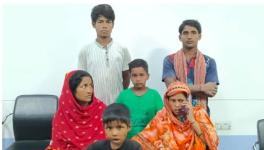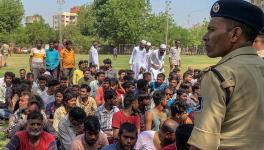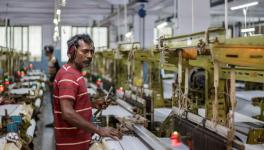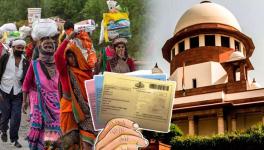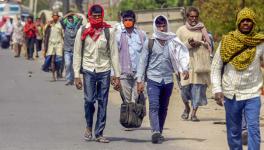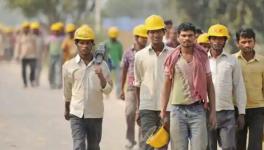Centre Should Evacuate Indian Labourers in GCC Countries on Priority Basis, Say Experts
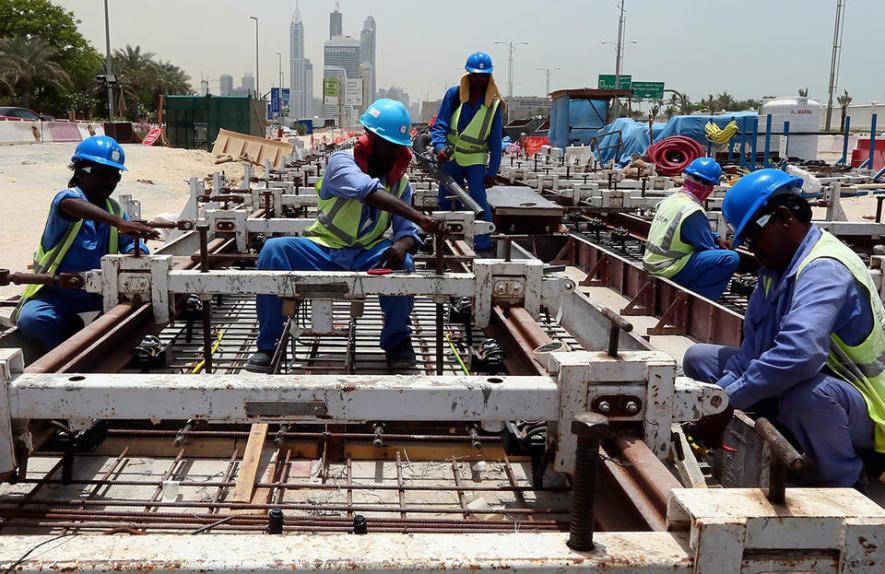
Image Used for Representational Purpose Only
Migrant labourers across the world are among the worst-hit sections due to the COVID-19 pandemic. The state of Indian migrants in the GCC [Gulf Cooperation Council] countries is no better. These expats--most of whom are semi-skilled and unskilled labourers--are at the bottom of the social structure in their host countries and have very limited access to healthcare.
Many small-scale businessmen, labourers and nurses from India have been tested positive for Covid-19 all across the world including in GCC countries. As a major portion of this workforce belongs to Kerala, Chief Minister Pinarayi Vijayan has written to Prime Minister Modi on this issue. Vijayan has urged the prime minister to make a ‘special consideration’ of the Keralites who want to return from countries in the Gulf region. "At the earliest opportune time, Government of India may consider arranging special flights to bring these people back,” wrote Vijayan assuring that the state government will take responsibility for “testing and quarantining needs of the Keralites” who are returning. The state government has already made all the arrangements to deal with the reverse migration in case the Centre takes such a step.
United Arab Emirates (UAE), Saudi Arabia, Qatar, Kuwait, Bahrain and Oman make up for the GCC countries. So far, 6,302 have tested positive for Covid-19 in UAE. As many as 37 deaths have been reported as well. In Kuwait, 1,751 have been tested positive and six have died. While Saudi Arabia has reported 7,142 positive cases so far, 87 have died. Qatar has recorded 4,663 cases and seven deaths, Bahrain has 1,744 cases and seven deaths and Oman has reported 1,180 cases and 6 deaths as well.
Two migration experts--S. Irudaya Rajan, a professor at the Centre for Development Studies (CDS), Thiruvananthapuram and a member of the Kerala government’s Expert Committee on COVID-19 and Ginu Zacharaia Oommen, a member of the Kerala Public Service Commission, formerly visiting professor at the Fondation Maison des Sciences de l’homme (FMSH), Paris--in an interview with The Hindu said that the Indian labourers stranded in the GCC countries are in dire need of help.
“Since medicines are very expensive in Gulf countries, migrants often procure their medication from India and stockpile for three to four months. Worryingly, there are reports these stocks have been used up and there is now an acute shortage. The Gulf countries lack broad-based healthcare facilities to accommodate a high number of patients. Indian associations have appealed to the Indian missions, particularly in Dubai, to hire and convert Indian schools into isolation wards. Before the situation worsens, the Indian government should evacuate on a priority basis those immigrants without visa documents, dependants who are mostly elderly, women, children and unemployed persons,” they said in the interview.
When asked about the living conditions of the labourers there and whether such conditions allow social distancing, the experts said : “Most of them are single men living in congested labour camps — using common toilets, rooms etc. One flat houses nearly 8 to 10 people using bunk beds, in what is commonly known as a “bed space”. Therefore, if anyone is infected, it will spread fast. At present, there are nearly 8 million Indian immigrants in GCC, of which nearly 2.1 million are from Kerala itself. The immediate task is to chart out a strategy that will, initially, envisage a safe evacuation of emigrants back to India and their rehabilitation back in the home society. Other States with high emigrant populations in the region are Uttar Pradesh, Bihar, Bengal and Punjab.”
Earlier, political analyst K Nageswar had pointed out while speaking to NewsClick that the worsening economy of the gulf countries due to fall in crude oil prices and other non-oil-related businesses will have an adverse impact on the Indian workers in Gulf countries.
“The fall in recruitments, increase in taxes, unpaid or delayed salaries and preference for locals in new jobs are among the factors that will cast an adverse impact on Indian workers there,” Nageswar told NewsClick.
As per various studies, Kerala has around 30 lakh migrant workers while 21 lakh Malayalis work outside too. However, “[W]e call them replacement migrants—Keralite plumbers in Dubai being replaced by plumbers from Odisha, for instance. The mass exodus of Keralites over the years has led to a situation where Kerala needs migrants from other parts of the country. Kerala is doing a good job during the crisis in providing accommodation, medication and food for these migrants. While the Kerala migrants are struggling for their safety and survival in Gulf, in sharp contrast, in Kerala the internal migrants have been protected and guarded in the most respectful manner — how will this play out into the future is now unpredictable,” they added.
Also read: Read more: Why Agriculture Remains the ‘Sink’ for Indian Capitalism
Get the latest reports & analysis with people's perspective on Protests, movements & deep analytical videos, discussions of the current affairs in your Telegram app. Subscribe to NewsClick's Telegram channel & get Real-Time updates on stories, as they get published on our website.









